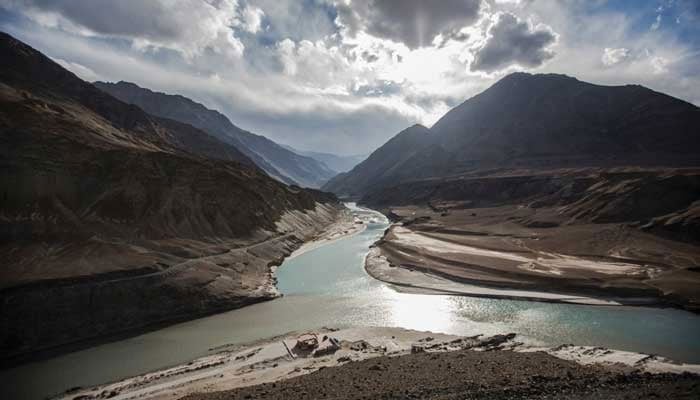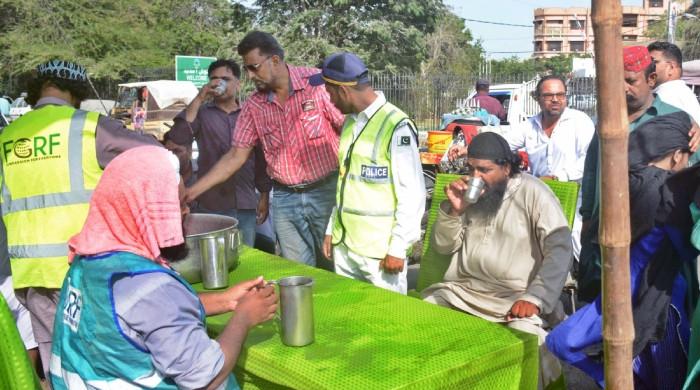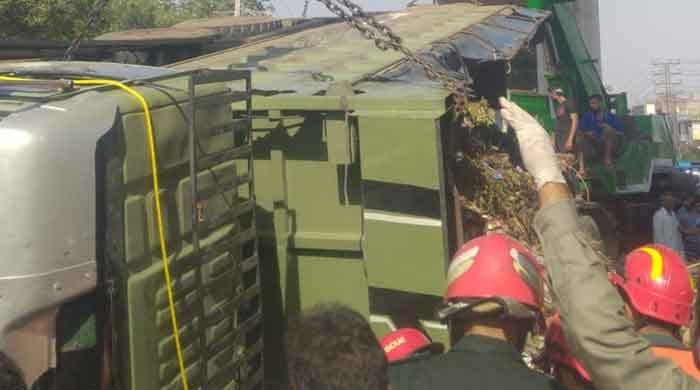 A representational image of convergence of Indus River and Tibet river. — AFP/File
A representational image of convergence of Indus River and Tibet river. — AFP/File- IWT governs use of Indus River and its tributaries between Pakistan, India.
- Baglihar Dam remains point of contention between rival countries.
- Pakistan and India on brink of an armed conflict since Pahalgam gun attack.
NEW DELHI: India has restricted the water flow from the Baglihar Dam on the Chenab River and is reportedly considering taking similar measures at the Kishanganga Dam on the Jhelum River, The News reported citing Indian media on Monday.
The hydroelectric dams — Baglihar in Ramban in Jammu and Kishanganga in north Kashmir — offer India the ability to regulate the timing of water releases, Press Trust of India reported quoting sources familiar with the matter. India’s decision to suspend the decades-old treaty follows the killing of 26 people, mostly tourists, in Pahalgam, Indian Illegally Occupied Jammu and Kashmir (IIOJK) on April 22.
The Indus Waters Treaty, brokered by the World Bank, has governed the use of Indus River and its tributaries between Pakistan and India.
The Baglihar Dam has been a longstanding point of contention between the two neighbours, with Pakistan having sought World Bank arbitration in the past. The Kishanganga Dam has faced legal and diplomatic scrutiny, especially regarding its impact on the Neelum River, a tributary of Jhelum river.
Both countries are on the brink of an armed conflict, even as Indian Prime Minister Narendra Modi, in a recent high-level meeting with the top defence brass, asserted that the armed forces have “complete operational freedom” to decide on the mode, targets and timing of India’s response to the terror attack.
New Delhi linked Islamabad to the attack without providing any evidence and took a flurry of punitive measures to downgrade ties, including suspending the IWT, revoking visas of Pakistanis, and closing the Wagah-Attari border crossing, among others.
Islamabad, in response, ordered the expulsion of Indian diplomats and military advisers, cancelling visas for Indian nationals, with the exception of Sikh pilgrims, and closing the main border crossing from its side.
It denied its involvement in the attack and offered to take part in a credible and transparent investigation.
Pakistan also shut its airspace to Indian airliners and suspended all trade with India, including through third countries. Rejecting India’s suspension of the Indus Waters Treaty, the country said any move to stop the flow of water will be seen as an “act of war”.
It may be noted that India has reportedly violate the IWT in the past as well by building at least three dams.
Defence Minister Khawaja Asif warned on Friday that Pakistan would strike if India builds any structure on the Indus River in violation of the water treaty.
.png)




